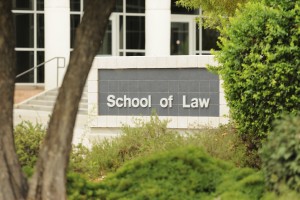The ABA Intends To Hold Law Schools Accountable
What types of new changes will the ABA be making to do this?
 The good news keeps coming for law school reform advocates. The ABA Section of Legal Education and Admissions to the Bar has taken its next affirmative step towards holding law schools accountable for their exploitative admissions and retention choices.
The good news keeps coming for law school reform advocates. The ABA Section of Legal Education and Admissions to the Bar has taken its next affirmative step towards holding law schools accountable for their exploitative admissions and retention choices.
Soon, the Council for the Section of Legal Education will publish the proposed ABA accreditation standard changes for public comment. The Council will assess any new information it obtains and consider approving the new standards in October. Although the Council is the final authority for law school accreditation, the ABA House of Delegates will vote in February. The process allows the House a formal but non-binding say in new standards.
Let’s review the proposals.

Is The Future Of Law Distributed? Lessons From The Tech Adoption Curve
Abolished Ban on Paid Externships
The ABA standards currently prohibit all law schools from allowing students to complete paid externships for credit. The Council has proposed eliminating this prohibition, which would allow each individual school to choose whether to allow paid externships for credit.
New Bar Passage Standard
The current bar passage standard is a mess and riddled with loopholes.
Standard 316: The “bar passage” standard. A school must pass one of two tests. [Test #1] Within 5 years, 75% ultimate bar passage rate or 3/5 years at 75% or more. [Test #2] First-time bar passage rate no more than 15% lower than pass rate of all ABA-approved graduates in same jurisdiction for 3/5 years. Subsection (c) provides that if a school does not come into compliance within 2 years, it may show good cause for an exemption.
The proposed Standard 316 eliminates these loopholes. Instead, 75% of all graduates who take the bar exam must pass within two years.
Sponsored

Navigating Financial Success by Avoiding Common Pitfalls and Maximizing Firm Performance

Legal AI: 3 Steps Law Firms Should Take Now

The Business Case For AI At Your Law Firm


Legal AI: 3 Steps Law Firms Should Take Now
New Attrition Limit
Enforcing the current non-exploitation standard (Standard 501) requires difficult and apparently paralyzing choices about the line between students who are and are not capable of completing school and passing the bar exam. To provide a clearer guideline, the Council has proposed the following:
Proposed Interpretation 501-3
A law school having an attrition rate for purposes other than transfers above 20 percent bears the burden of demonstrating that it is in compliance with the Standard.
The effect: create a rebuttable presumption that a school that fails out 20 percent of students has made exploitative admissions choices.
Combined Power
Under the new regulatory scheme, Standard 316 and Standard 501 would pressure law schools to take more care in the students they admit. Right now, dozens of law schools continue to enroll students for their tuition money under the auspices of opportunity because loss of accreditation has not been a threat. These proposals change that calculation.
Alone, the rebuttable presumption of non-compliance from high attrition would encourage schools to keep struggling students in school. The stronger bar passage standard limits this problem immensely. If you graduate students who face significant risk of never passing the bar exam, Standard 316 stands in the way.
Sponsored

Is The Future Of Law Distributed? Lessons From The Tech Adoption Curve

Early Adopters Of Legal AI Gaining Competitive Edge In Marketplace
Here’s how the standards work together:

The top line is the bar pass rate. The left line is the maximum attrition allowed.
With a minimum bar passage rate of 75% and a maximum attrition rate of 20%, a school needs 60% of its new students (who do not eventually transfer) to complete school and pass the bar exam.
In addressing schools drastically lowering admissions standards, the ABA needs to decide how to properly balance consumer protection and opportunity. The ultimate percentages the ABA chooses depend on that resting point. For now, the Council believes that, as long as 60% of a school’s new students pass the bar within two years, schools have not gone too far.
Whether that’s too far or not far enough will be a battle fought this summer.
Kyle McEntee is the executive director of Law School Transparency, a 501(c)(3) nonprofit with a mission to make entry to the legal profession more transparent, affordable, and fair. LST publishes the LST Reports and produces I Am The Law, a podcast about law jobs. You can follow him on Twitter @kpmcentee and @LSTupdates.







